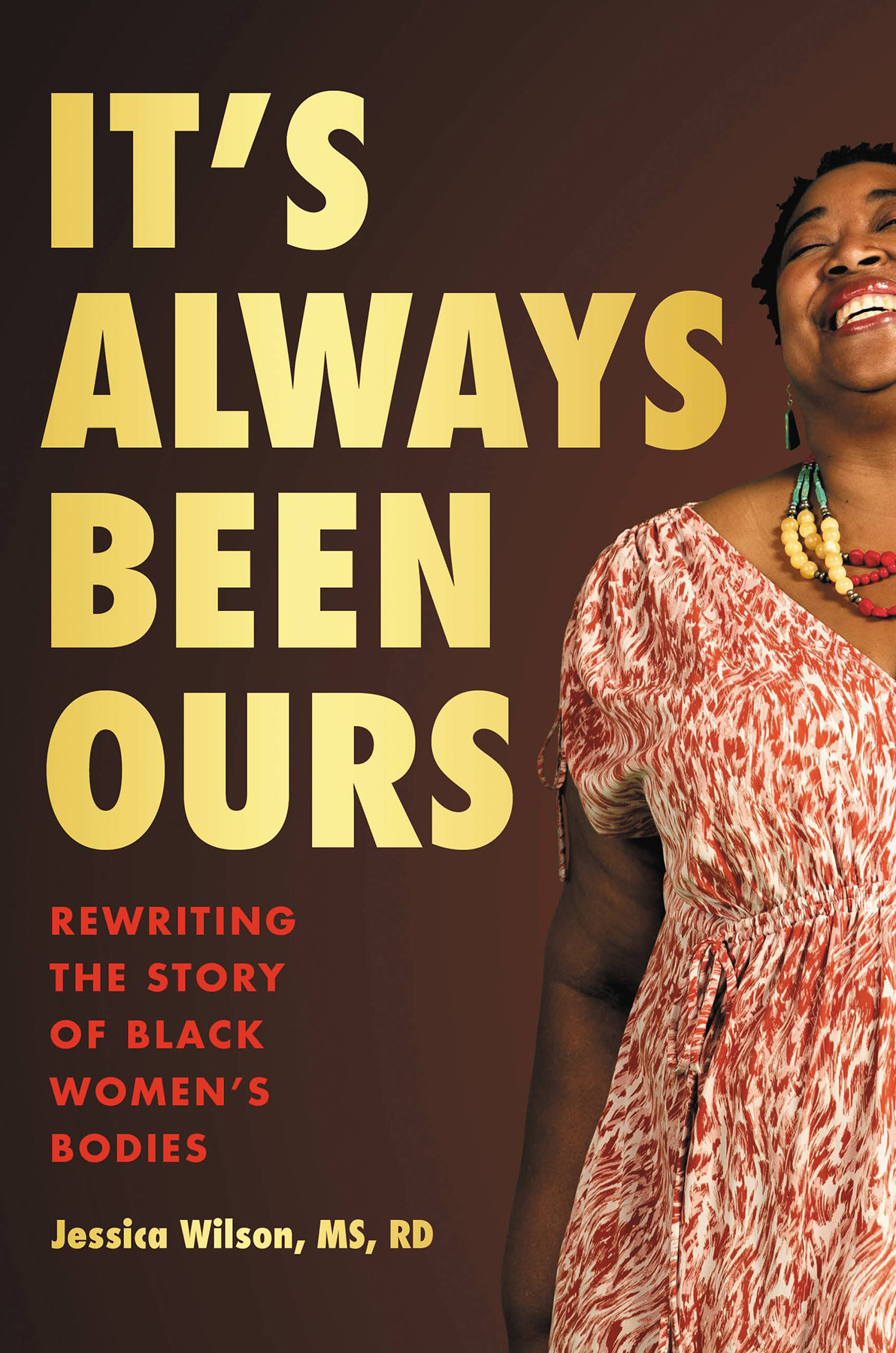
Note: The information in this book is true and complete to the best of our knowledge. This book is intended only as an informative guide for those wishing to know more about health issues. In no way is this book intended to replace, countermand, or conflict with the advice given to you by your own physician. The ultimate decision concerning care should be made between you and your doctor. We strongly recommend you follow their advice. Information in this book is general and is offered with no guarantees on the part of the author or Hachette Go. The author and publisher disclaim all liability in connection with the use of this book.
Some names and details have been changed, whether or not so noted in the text, and certain individuals discussed are composites.
Copyright 2023 by Jessica Wilson
Cover design by Terri Sirma
Cover photograph Kim Newmoney
Cover copyright 2023 by Hachette Book Group, Inc.
Hachette Book Group supports the right to free expression and the value of copyright. The purpose of copyright is to encourage writers and artists to produce the creative works that enrich our culture.
The scanning, uploading, and distribution of this book without permission is a theft of the authors intellectual property. If you would like permission to use material from the book (other than for review purposes), please contact permissions@hbgusa.com. Thank you for your support of the authors rights.
Hachette Go, an imprint of Hachette Books
Hachette Book Group
1290 Avenue of the Americas
New York, NY 10104
HachetteGo.com
Facebook.com/HachetteGo
Instagram.com/HachetteGo
First Edition: February 2023
Hachette Books is a division of Hachette Book Group, Inc.
The Hachette Go and Hachette Books name and logos are trademarks of Hachette Book Group, Inc.
The publisher is not responsible for websites (or their content) that are not owned by the publisher.
Library of Congress Cataloging-in-Publication Data has been applied for.
ISBNs: 978-0-306-82769-3 (hardcover); 978-0-306-82771-6 (ebook)
Library of Congress Control Number: 2022946640
E3-20221214-JV-NF-ORI
To Lexi
M y waiting room and office space communicate everything I want patients to know: that my work centers those too often overlooked by my fellow dietitiansBlack women, femmes, and queer folks. The bookshelves display covers that address body politics and queerness; the walls are hung with artist Alillias life-size paintings of Black bodies, unapologetic in their abundance. My favorite, Breathe Beauty , greets me in the waiting room every time I walk out of my office. The figure in the painting has dark skin with gold highlights around nose and eyes. The figure is naked from the shoulders up, face framed by blue-black, kinky hair falling around the shoulders. Dark, full lips form part of the violet butterfly that is painted around the mouth. The figures strong gaze strikes me as empathetic and calm, a welcome presence in an office that holds many emotions.
Mia is in the waiting room, perched on the edge of my couch wearing a pressed navy pencil skirt and a pink silk blouse with pearl buttons. I glance up at Breathe Beauty as I exit my office and greet her. Knee bouncing, Mias black spiral-bound notebook is moving up and down on her lap. She has relaxed hair that reaches past her shoulders. It is nine a.m. on a Saturday and, though many of my clients would arrive in casual attire, Mia is dressed to be taken seriously. I am curious about whether she has not been heard or respected by previous clinicians.
As we walk into my office, I turn on the noisemaker for privacy and invite her to have a seat on my black leather loveseat. Its overcast in Oakland that morning; she looks out the window as she gets settled.
We exchange pleasantries before I let her know what she can expect from me: honesty, curiosity, and a political context for her experiences. I find that sharing my style up front reduces anxiety for my clients and allows me to connect with them more quickly. One hour is very little time to hear a Black womans body story.
Within minutes Mias story unfolds. Shes here because shes exhausted, so exhausted that even a good nights sleep does not restore her. Shes recently changed medical insurance and met with a new doctor who told her that her lab results show signs of malnutrition, which is how she ended up in my office. Also, at her last salon visit she and her hairdresser realized that her hair is thinning and also has stopped growing. The hairdresser recommended some supplements for hair growth, and Mia is hoping to get my feedback on these, as well as supplements that can fix her deficiencies and increase her energy.
Mia is twenty-four and has just started graduate school in a town close to home. She is in a predominately white aerospace engineering program, the only Black woman in her class. Six months prior to starting her program she embarked on a Wellness journey after her previous doctor told her that she was obese. That doctor told Mia she needed to lose weight to reduce her risk of developing chronic diseases, ones that she is more likely to get anyhow because she is Black. At twenty-four, apparently Mia needed to be concerned about the ways she is likely to die as a Black woman. Her body, from that appointment on, was a risk factor. Mia hadnt thought of her body in such a pathologizing way prior to that appointment. Hearing how the doctor problematized her body was disturbing to Mia; she lost the weight he recommended and more. She scoured the internet for advice and looked up ideas for healthy meal prep. She stopped eating meals with her family and instead brings over her own containers of food to eat while they share food her mom has prepared. She started going to the gym every day and is now worried to take a day off.
The response to her weight loss has been overwhelmingly positive. She has noticed a shift in her social capital and desirability. Her peers and professors have started looking at and talking to her differently. Her classmates know how much she exercises and praise her for taking the time to do so when the academic workload is so overwhelming they dont even have time to sleep. Mia appreciates the feedback and interprets this to mean that she is disciplined and Healthy in their eyes. But Mia doesnt engage with her peers outside of classes because she needs to exercise. She also doesnt join them for happy hour because she doesnt want to pay for a side saladthe only thing she eats at restaurantsbecause she could make the same thing at home for less money. And besides, the alcohol is just extra calories that she doesnt need.
I ask Mia about her days, and ask more specific questions about how much she is eating and how much she is exercising. I ask her which supplements she is already taking. We discuss what messaging she got about food and bodies as she was growing up. As we continue to talk, she gets visibly impatient. She tells me that she came here for me to tell her what is missing in her diet so that she can take supplements to make up for it, thats all. I realize that my attempts to build rapport arent whats needed in this moment and decide to be clear about my concerns. I tell Mia that her energy levels will likely improve and her hair may grow back if she begins to eat more food and exercise less.
I see the confusion on her face, the subtle frown line and slightly raised eyebrow. She tells me, That cant be the problem; what Ive been doing is working , its getting results . Theres just a vitamin or mineral missing from my diet; maybe magnesium?









